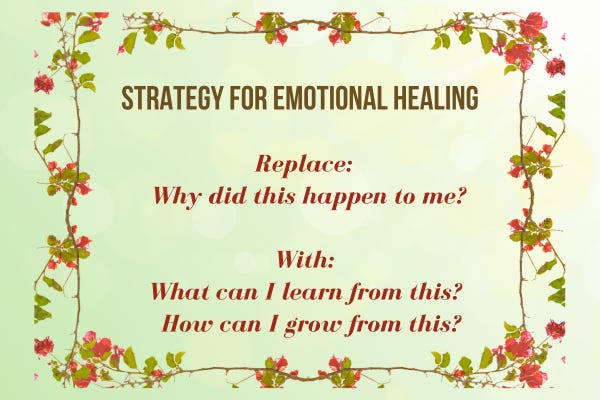The Problem with Asking Why
Different questions may lead to more productive conversations and healing.
Humans are curious creatures. We ask questions to understand others, ourselves, and the world around us. Some questions are more helpful than others. One of the questions I learned to use sparingly was: Why? That statement may quickly make you wonder: Why is that?
Why can feel judgmental.
When I was in graduate school we were quickly taught to use the question why very sparingly or not at all. At first this seemed odd. However, as I observed clients’ responses to why questions, I quickly understood how asking why could convey a judgmental tone.
Notice what comes up for you when you are asked a lot of why questions. For instance:
Why did (or didn’t) you do that?
Why would you think that?
Why are you crying?
Why are you so upset?
The most common response to a why question is: I don’t know! Starting a question with why can feel judgmental, even if that is not the intention. Asking someone: Why are you so upset? can sound like they are over reacting or being upset isn’t warranted. When we are asked why, it can create a feeling of defensiveness and having to justify our reaction or behavior. It can shut down the conversation rather than create more exploration. There are more neutral ways to ask these questions. For example:
What happened?
I am curious what made you think that?
What is making you cry?
What is coming up for you right now?
You seem really upset. Do you want to talk about it?
Having to know why something happened can keep us stuck.
We have all been hurt and experienced mistakes and misfortune. While reflection on what led to our pain can be helpful and potentially bring understanding, sometimes we may never get a suitable explanation. It can be tempting to have to know why something happened before we allow ourselves to move forward. However, what if we can’t answer the why question? What if the answer doesn’t make us feel any better? Sometimes we have a clear understanding of what led to getting hurt and other times we don’t. We often crave an explanation when bad things happen or others cause pain, however we don’t always get it. Sometimes pondering why bad things happen leads us to blame ourselves or others which doesn’t help. There isn’t always an answer for why something happened. The good news is there are different questions that can move us forward and start the healing process. For example:
Notice what comes up for you when you are asked why questions and how often you ask why questions. Can you change the wording to make questions easier to approach? Using the words what or how or simply making an observational statement can allow a conversation to flow better. What would it be like if there were fewer why questions in your life?
Thanks for reading Mental Tune-Ups! Subscribe for free to receive new posts and support my work. Posts will go straight to your Substack app or email inbox. If you think this post will benefit someone you care about, pass it along!



